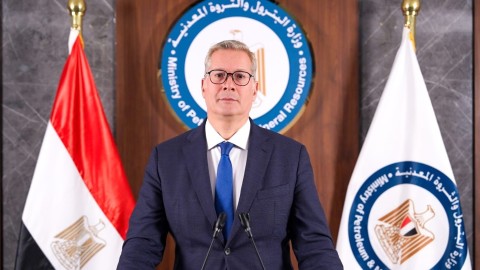Egypt’s robust oil and gas infrastructure aligns with its ambition to establish itself as a regional energy trading hub. The country’s strategic location and substantial resources position it as a promising candidate for this role. This well-developed infrastructure facilitates the export and import of oil and gas, enabling Egypt to participate actively in hydrocarbon trade while serving as a crucial energy transit nation.
Egypt’s Oil & Natural Gas Infrastructure
Egypt is operating the Suez Canal, a 193km artificial waterway that connects the Red Sea to the Mediterranean Sea, and the Suez-Mediterranean Pipeline (SUMED), a 42-inch pipeline that transports crude oil between the Gulf of Suez and the Mediterranean Sea. These two critical pieces of infrastructure play a vital role in the global transportation of crude oil and liquified natural gas (LNG), connecting energy trading markets in Europe, Asia, and Africa.
“Egypt has crude oil storage facilities located at the Ain Sukhna and Sidi Kerir terminals, which are located at the beginning and the end of the SUMED pipeline. The Sidi Kerir terminal, located on the Mediterranean, has 27 storage tanks with a total capacity of 20 million barrels, while the Ain Sukhna terminal (located on the Red Sea) has 15 floating storage tanks with a total capacity of 10 million barrels,” according to Country Analysis published by the Energy Information Administration (EIA) in 2022.
This comes as vessels assisting loading and unloading of crude oil tankers at SUMED terminals have been retrofitted recently. “Seven service vessels operating at single point mooring (SPM) terminals of the Sumed Pipeline have new seawater-lubricated bearing systems from Thordon Bearings,” as reported by Riviera Maritime in June 2023.
Meanwhile, Minister of Petroleum and Mineral Resources, Tarek El Molla, stated in June 2022 that Egypt has a strong infrastructure that can be linked to the gas fields producing in the region, in addition to good relations with partners in the Eastern Mediterranean region. El Molla’s comments came as the Egyptian Natural Gas Holding Company (EGAS) signed a memorandum of understanding with Chevron EMed Midstream Ltd., for cooperation in the activities of transporting, importing, liquefying and exporting East Mediterranean gas through Egypt, which supports Egypt’s regional energy hub vision.
Meanwhile, Egypt has two liquefaction plants in Damietta and Idku, which help the country export LNG to the European market, as well as import natural gas from neighboring countries to be re-exported in the form of LNG to Europe. The two liquefaction plants have the capacity to export 13 million tons per year of LNG, Magdy Galal, Chairman of the Egyptian Natural Gas Holding Company (EGAS), told an energy conference in February.
Egypt as a Regional Energy Hub
In the past two years, after the Russian military operation in Ukraine, Egypt’s position as a natural gas trading hub was intensified as the country’s LNG exports to Europe increased. Egypt’s exports of LNG grew by 14% year-on-year to 7.5 million tons in 2022, as reported by El Ahram Newspaper. This comes as Egypt shipped 80% of its LNG exports to Europe in 2022, according to Reuters.
During June 2022, Egypt signed a memorandum of understanding (MoU) with both the European Union (EU) and Israel for regional cooperation related to trade, transport, and export of natural gas to the EU.
As a part of its leading role in the region, in 2018, Egypt had introduced the Initiative to establish the East Mediterranean Gas Forum (EMGF), which is a platform supporting structured dialogue on natural gas and its policies, unlocking the potential for natural gas in the East Mediterranean region.
Meanwhile, Egypt has been working on developing ports to boost their oil and gas trading and storage capacity to enable the country’s vision to become a regional hydrocarbon trading hub. Moreover, the Egyptian government has been working on boosting the ports’ role in transit by providing ship fueling services at ports such as the West Port Said port, which witnessed its first successful fueling of a container ship in July 2023, as reported by Al Ahram Newspaper.
Egypt boasts a robust energy infrastructure that is poised to propel it to the forefront as a regional oil and gas trading hub. The country’s strategic location, coupled with its vast energy resources, makes it an ideal candidate to assume this pivotal role.








